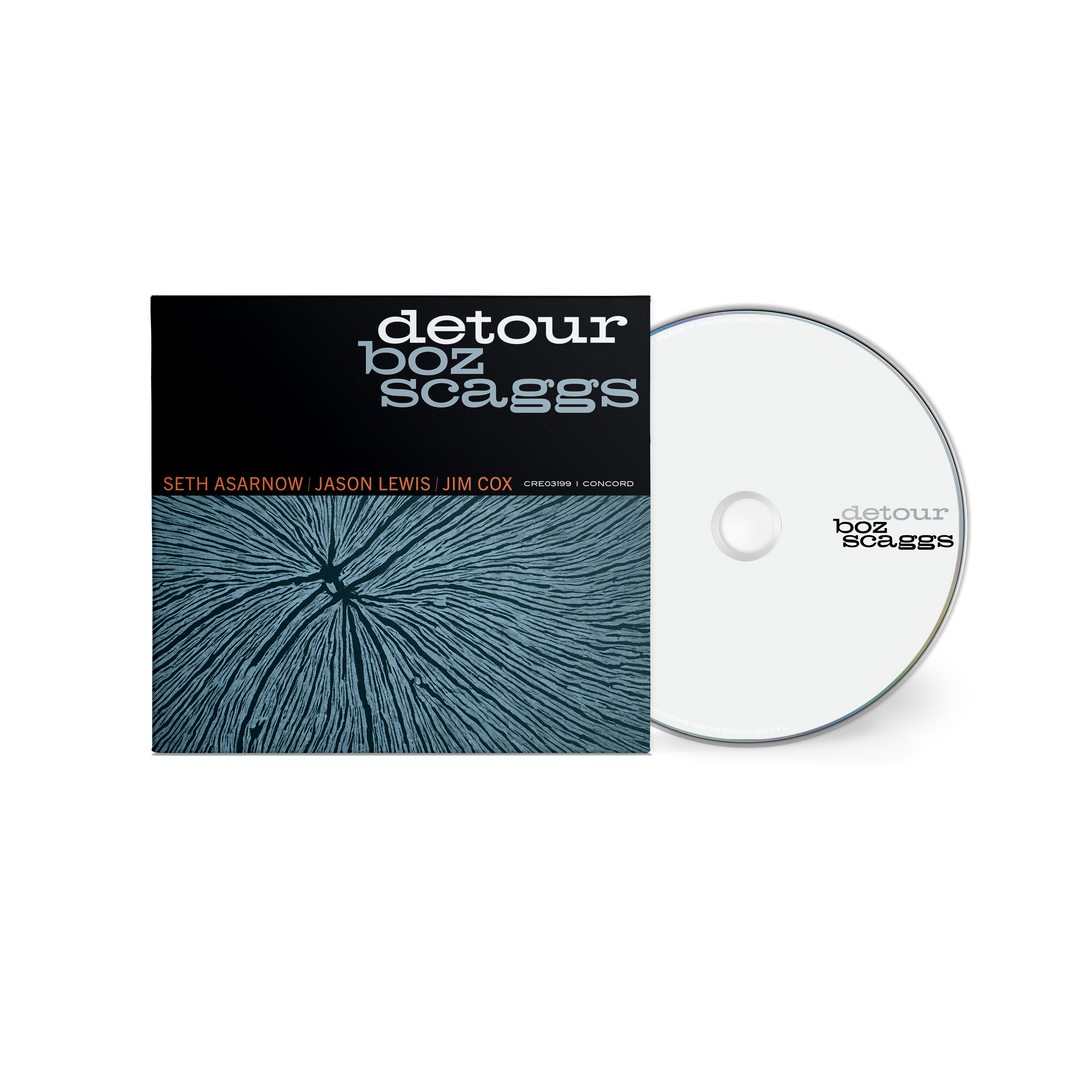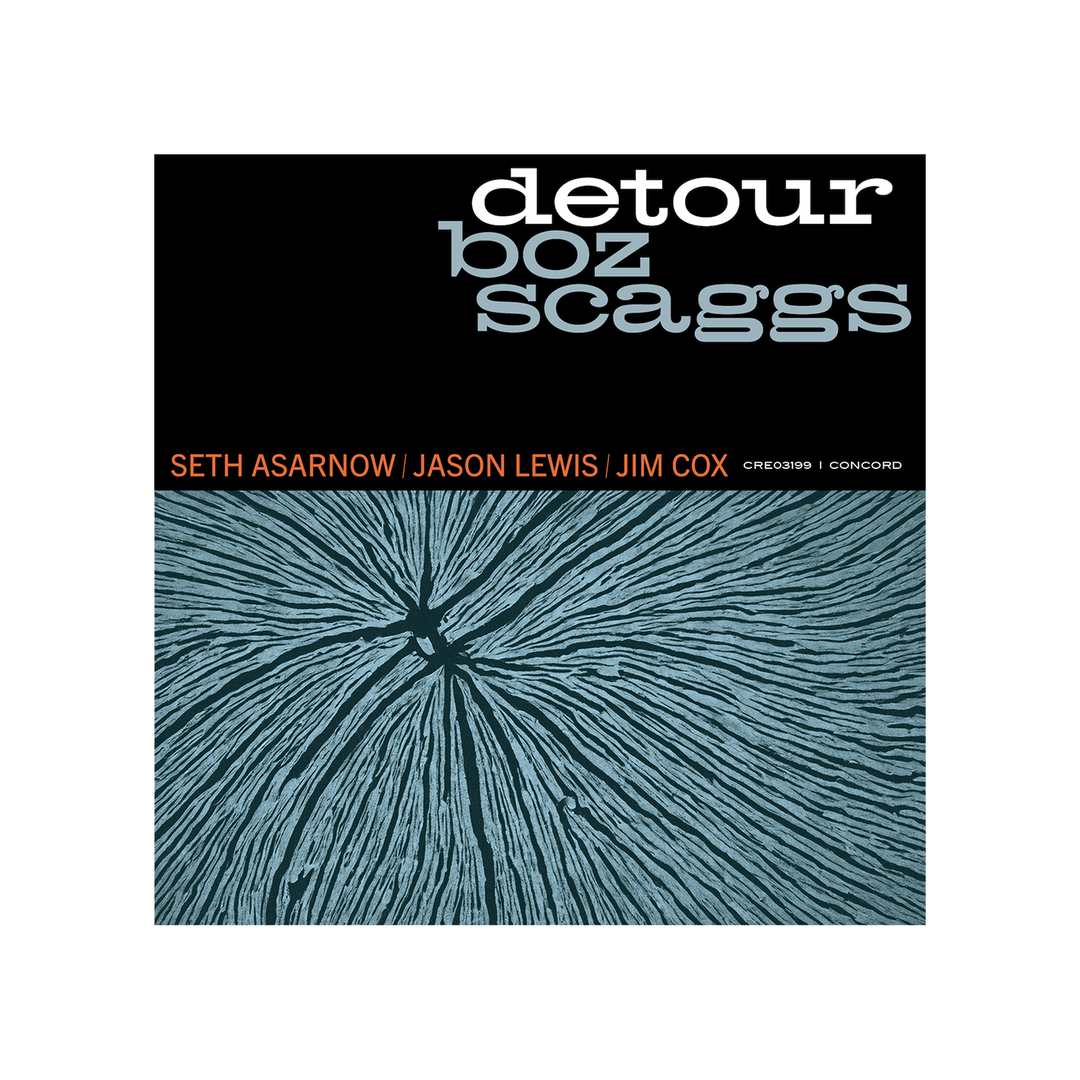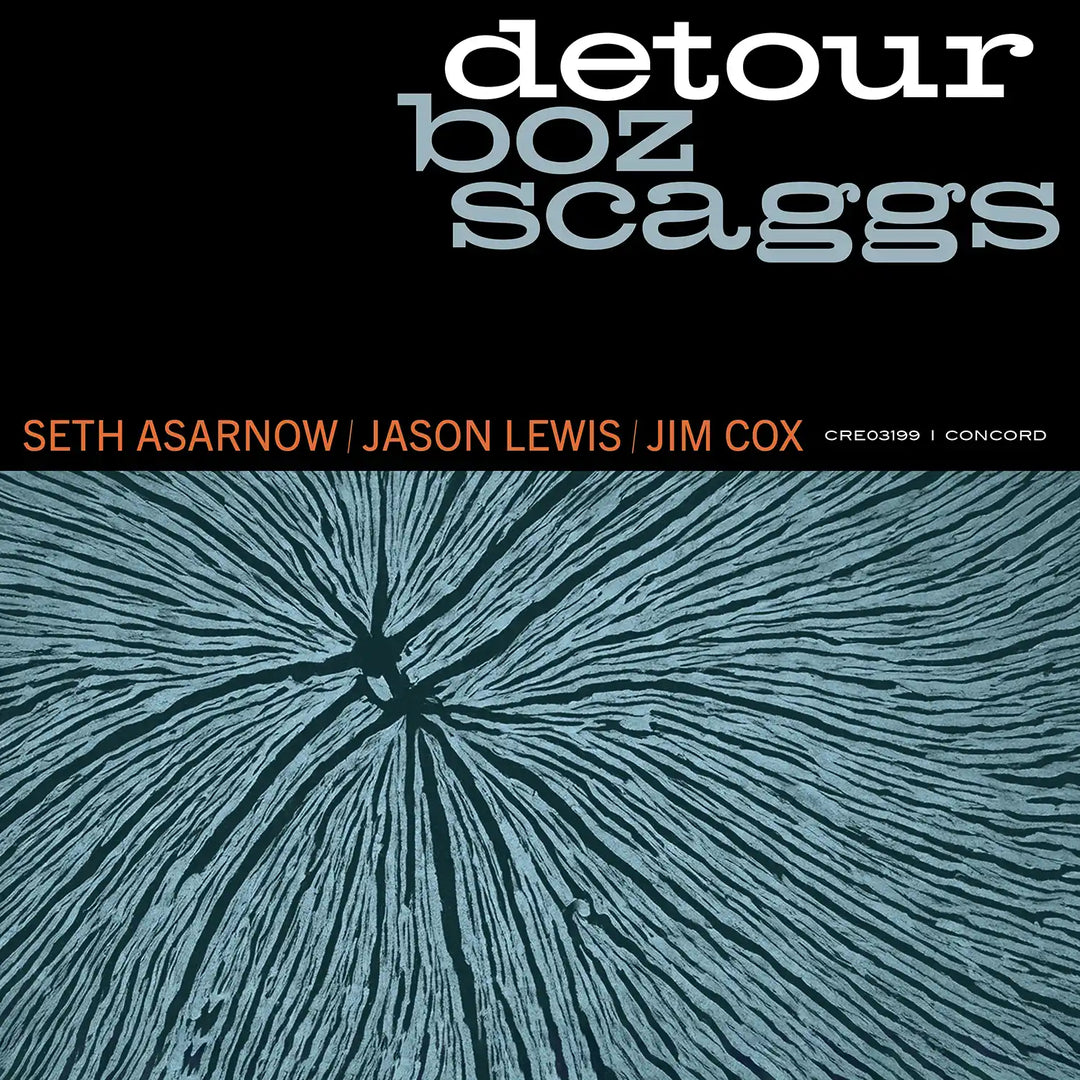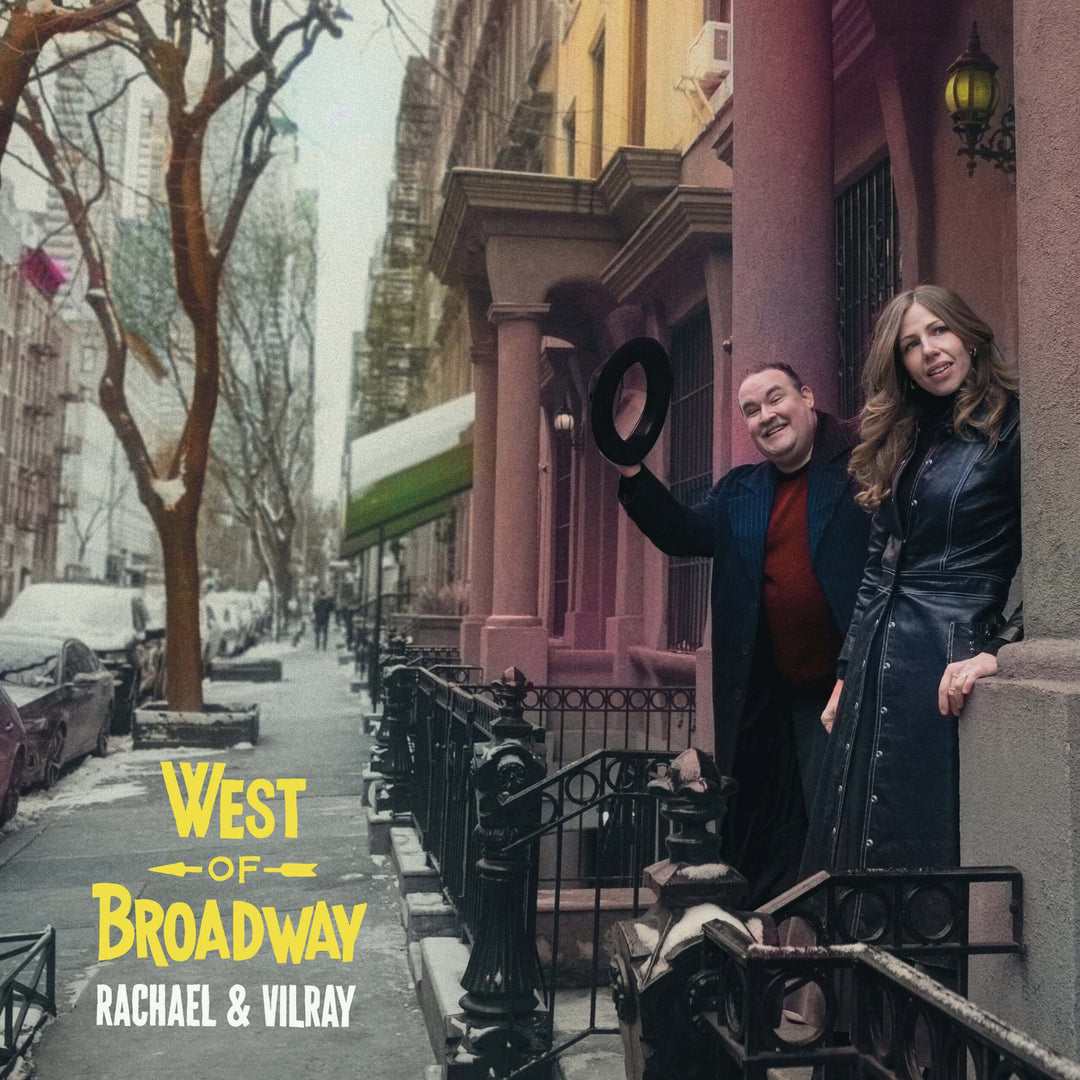Detour - Boz Scaggs
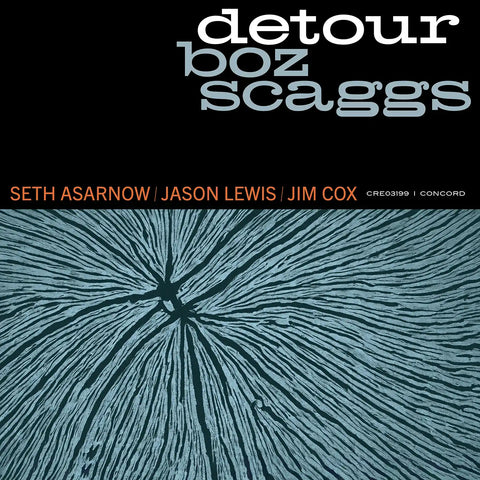
Sometimes in life, an unexpected detour leads you right where you belong. Boz Scaggs’ captivating new album is proof of that.
“I had no intention of making a record when I started singing these songs,” the Grammy-winner confesses. “It was all very casual at first, just an opportunity to explore a style of music I’ve always liked, to get together with a friend and play for the sheer joy of it.”
Detour, Scaggs’ first new studio album in seven years, is more than just a sonic diversion, though; it’s a love letter to the Great American Songbook. Recorded over the course of the last several years with pianist Seth Asarnow, the collection finds Scaggs interpreting timeless standards with tender insight and profound emotional sophistication. The tracks here began life as a series of demos for Scaggs’ personal use as he expanded his vocal stylings, but it soon became apparent that there was something magical about the performances and arrangements, something undeniable that deserved to see the light of day. The result is an eclectic mix of the familiar and the obscure that tips its hat to everything from Frank Sinatra and Ella Fitzgerald to Irma Thomas and Lonnie Johnson, an elegant reimagining of old favorites and new discoveries delivered with both reverence and a fresh perspective.
“There are as many different approaches to these songs as there are singers who’ve taken them on over the years,” says Scaggs. “It’s a wonderful feeling to be able to join their harmonic ranks and contribute my renditions to this rich musical legacy.”
Hailed by Rolling Stone as “one of rock and roll’s most soulful vocalists,” Scaggs has his own rich musical legacy dating back to the 1960s, when he took on the role of guitarist and singer with the Steve Miller Band. His tenure with the group was short-lived, though, and after just two albums, he left to pursue his own solo career with Atlantic Records, who released his self-titled American debut (produced by Jann Wenner and featuring a young Duane Allman) in 1969. By the ’70s, Scaggs had made the leap to Columbia, releasing a series of critically acclaimed records leading up to 1976’s Silk Degrees, which would make him a household name on the strength of smash singles like “Lido Shuffle,” “It’s Over,” and “Lowdown.” (The five-times platinum album also spawned the band Toto, which featured several musicians Scaggs assembled for the recording sessions.) In the years to come, Scaggs would go on to share bills with the likes of Fleetwood Mac and the Eagles, play everywhere from SNL and The Tonight Show to Austin City Limits, and tour as The Dukes of September with Donald Fagan and Michael McDonald. Along the way, he would sell millions of records worldwide and crack the Top 40 eight more times while carving out a distinctive and enduring path that’s endeared him to six decades of fans.
“If I look at myself as a musician over the years, I’d have to consider my primary instrument to be my voice,” says Scaggs. “Early on I was really influenced by rock and roll guys like Chuck Berry and Elvis Presley and R&B and soul singers like Curtis Mayfield and Bobby ‘Blue’ Bland, but there was something about jazz and standards that always fascinated me.”
Scaggs first dipped his toe into the Great American Songbook on 2003’s But Beautiful, which hit #1 on the Billboard Jazz Chart, and returned again on 2008’s Speak Low, a similarly chart-topping endeavor which featured more ambitious arrangements, but those early forays only served to whet his appetite.
“I’m not a technical jazz singer, but the more I explored the music, the more I learned about phrasing and delivery, the more I sensed a style growing and evolving,” he explains. “The songs were so much more complex than anything I’d done before, and it was just so rewarding to find my own way through them.”
Scaggs credits much of his recent development to Asarnow, who introduced him to new material and helped him refine his phrasing.
“At first, we were just meeting up in musical conversation,” Scaggs recalls. “I was taken with his piano work, he with my voice, and we both sensed the possibilities.”
Scaggs began recording Asarnow’s piano renditions in order to polish his delivery of the songs, and soon the idea of turning the sessions into an album took hold. Asarnow was skeptical at first, fearing any attempt at capturing such inherently off-the-cuff performances might rob them of their singular charm, but Scaggs was unable to shake the idea. He headed to LA first, where he attempted to make the album with session musicians, and then to New York, where he repeated the effort, but both sessions fell short when compared to the aura of those unassuming work tapes he’d cut at home with Asarnow.
“Eventually, I went back to Seth, convinced that the material we’d recorded together was closer to my heart and my sensibilities than anything I’d been able to capture anywhere else,” says Scaggs. ‘Fortunately, the idea had really grown on him during that time, too, and together, we pulled up all the bits and pieces we’d recorded and started fleshing them out in a way that allowed us to preserve the integrity and the spontaneity of those demos.”
Album opener “It’s Raining” sets the stage, walking the line between jazz and blues with a gentle piano and vocal arrangement that slowly swells to include an understated upright bass and lush strings. Like much of the record, the song reveals Scaggs to be more than just a casual student of the standards (he based his approach here off of a live, late-career performance of the song by its writer, Allen Toussaint, rather than any of the more well-known studio versions), and his abiding respect and admiration for the material is easy to hear. A smokey, swinging take on “I Could Have Told You” draws out every last drop of sweet irony from the lyrics; an unhurried rendition of “Tomorrow Night” reaches back to the song’s showtune roots; and a serene rendition of “The Very Thought Of You” fits Scaggs’ voice with a natural ease that speaks to the essential fit of the duo.
“We probably worked up about 40 songs that could have been on this album,” Scaggs recalls, “and our goal was always to find our on truth in each tune. We tried to feature songs that hadn’t been around the block in a while.”
In several cases, that meant performing tunes Scaggs was unfamiliar with before Asarnow introduced him to them. Songs like the brooding “Angel Eyes” (which also appears as a bonus track with an alternate arrangement), bossa nova “Once I Loved,” and bittersweet “Detour Ahead,” for instance, were all new to Scaggs, who made deep dives into the songs’ histories and past recordings for inspiration. One track on the record, however, may stand out as more familiar than all the rest to any longtime Scaggs fan.
“There was a song called ‘I’ll Be Long Gone’ on my first album for Atlantic, and I get a lot of requests for it even though I haven’t performed it since the early ’70s,” Scaggs explains. “Seth suggested revisiting it, and he put together this beautiful arrangement. It was never intended to be part of a standards collection, but it ended up falling in perfectly with everything else we did for this album.”
It’s a fitting twist—and a poignant highlight—for an artist who’s learned to embrace life’s many detours.





